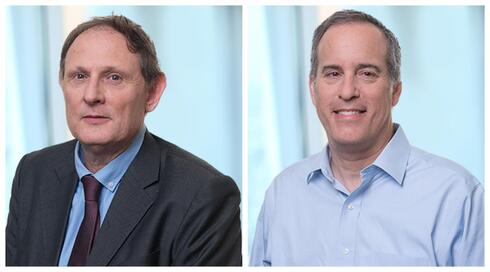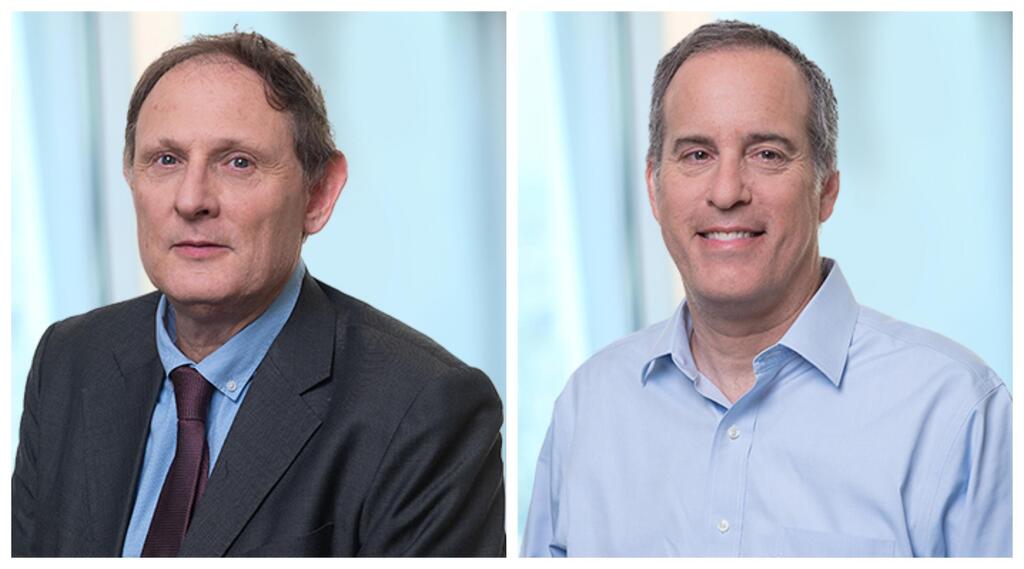
Law Gateways
Gross & Co: Addressing the talent crunch in Startup Nation
The law firm outlines some ways Israel can combat the rise in empty seats found in tech companies
“The [most important] process is the need to attract and keep talent,” explain the tech experts of Israeli law firm Gross & Co. “The shortage of employees is the key issue delaying the growth of companies. This will leave the industry in a need to find employees in places where it hasn't fully tapped yet, including the Arab sector, Haredi sector, more women, more outsourcing abroad, and opening of subsidiaries in other countries.”
Gross & Co is one of the top Israeli law firms participating in CTech’s Most Important Gateways to Israeli Tech series. The heads of the firm's tech department answered a series of questions asked by CTech about their involvement in the Israeli ecosystem, and explored some of the ways that they have helped companies grow and scale - an important ability during a talent crisis. “Also, the value of stock options as a retention tool and marketing tool is much clearer and employees have come to realize the importance of stock options and the economic benefits they can derive from stock options. Salary is not the sole consideration anymore.”
1 View gallery


Dr. Ayal Shenahv - Co-Managing Partner and Head of the Hi Tech and Venture Capital Practice, and Richard J. Mann – Partner and Head of the M&A Practice.
(Photo: Nimrod Kapeluto)
Name of firm: Gross & Co.
Tech sectors of expertise: Venture Capital, Fintech, AI, Digital Health, Cyber, Agro Tech, and more.
Number of lawyers in the tech and VC departments: 60
Heads of department: Dr. Ayal Shenhav and Rick Mann
Notable clients:
- Startups: Papaya Global, Melio, Gett
- Funds: Insight Partners, Cyberstarts, SCapital, TLV
Notable deals in 2020-2022:
- Advising Melio Ltd. on financing rounds, compliance issues, regulatory matters, and commercial contracts.
- Advised Papaya Global on multiple financing rounds, resulting in the client becoming a “unicorn” with a valuation of more than $1bn.
- Advised Otonomo Technologies on its agreement to go public on NASDAQ through a business combination with a SPAC.
Following the SPAC and IPO boom in 2021 - What trends are you expecting for the upcoming short and medium-term?
It seems that the SPAC market and IPO market have cooled off in 2022. However, we expect that public offerings will continue as more companies mature and the market rebounds. We think some trends will be: (i) correction of private company valuations in line with changes in public markets; (ii) many first time funds being formed to invest in seed and early-stage companies where funds are needed; (iii) more Mega Funds like Insight, SoftBank and General Atlantic will come to Israel.
What is the most important process Israeli high-tech has experienced over the past two years and where does it leave the industry?
The main process is the need to attract and keep talent. The shortage of employees is the key issue delaying the growth of companies. This will leave the industry in a need to find employees in places where it hasn't fully tapped yet, including the Arab sector, Haredi sector, more women, more outsourcing abroad, and opening of subsidiaries in other countries. Also, the value of stock options as a retention tool and marketing tool is much clearer and employees have come to realize the importance of stock options and the economic benefits they can derive from stock options. Salary is not the sole consideration anymore.
What are the business/cultural/economic differences between Israeli and foreign VC investors?
I think that currently, the Israeli VCs are quite similar to their U.S counterparts. Deal terms in both countries are similar as well as the ability to grow unicorns and not seek small exits. Israeli VCs are founder-friendly. They understand that their role is not just to provide funding but also additional support to companies (value creation) in the form of strategic contacts, helping bring VCs to lead subsequent rounds, assist in the IPO process, and more. The main difference is the size of the funds. While U.S VCs often manage billions of USD per fund, the larger Israeli VCs manage $200m USD or so per fund. Therefore, Israeli VCs would typically tend to focus on earlier stage investments and will not be able to compete in the mega-round / $1b USD plus valuations.
Why aren’t there enough Israeli institutional investors in tech? How should they be encouraged?
In the last 24 months, we actually saw very large growth in the investment of Israeli institutional investors in Israeli tech companies. In this regard, the program of the Innovation Authority (Route 43) seems to have worked well. The Israeli Institutional Investors are anchor investors in funds, conduct co-investments, and have a growing footprint. We believe that the cash flows into Israeli Institutional Investors are so large that the percentage of the Israeli Institutional Investors in the overall investments will continue to grow.
What is the most important thing an entrepreneur should focus on when selecting a law firm?
The commitment of the firm to helping the entrepreneur succeed and the added value it can provide. We are very active in helping entrepreneurs meet potential investors, we are happy to take some of our fees in the form of equity to align interest. We assist entrepreneurs in many business aspects, for example understanding the possible valuations, the compensation model of key executives, and more.
Basic mistakes made by entrepreneurs:
Delaying the signing of the founders' agreement and then there is almost no way to solve conflicts between founders, raising capital for 12 months of operations to reduce dilution and then getting into cash flow issues when things take more time than expected. So we recommend raising funds for at least 18 months of expected cash flow and burn rate.
What are the most important parameters for a law firm when deciding to represent an entrepreneur in a deal (product, paying customers, entrepreneur’s previous experience), and what would be a reason to turn down an entrepreneur?
We usually want to work with entrepreneurs who have previous experience with our firm or were recommended by other clients. We believe in long-term relationships and want to work with entrepreneurs which also want a long-term relationship. We would turn down an entrepreneur in rare cases where we see an integrity issue or asking for a deferral package that is too long and one-sided.
What are the most crucial stages of a deal?
In a deal momentum is key. There needs to be a clear timeline and ongoing back and forth between the company and investors. The most crucial stage is typically the term sheet in which the key terms are agreed upon. Founders should be very focused on the term sheet and make sure they fully understand each term.
Examples of an interesting deal from the past two years from which important lessons can be learned.
Last year we formed a very innovative legal structure for venture capital funds. This structure is called the Israeli Series Partnership and allows an easy format for co-investments. Instead of setting up a new SPV for each investment, we set up one partnership and each deal is in a separate class. While this structure was used in Delaware we imported it to Israel and saved clients a lot of time and administration in setting up a co-investment structure.















